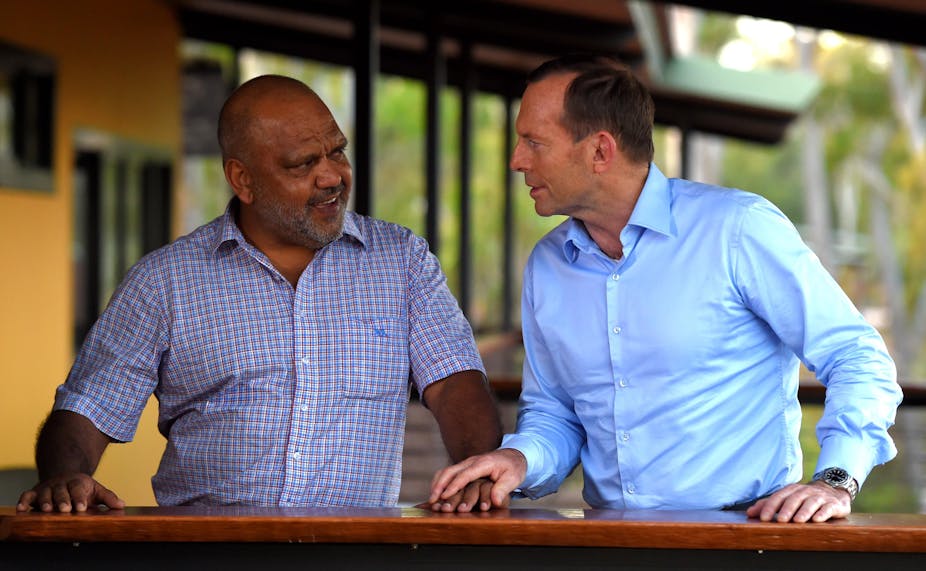Tony Abbott and Bill Shorten will make their first joint appearance to promote the constitutional recognition of Australia’s first people on Thursday night.
The function, in the Redfern area, is a dinner organised by Recognise, the group which is campaigning for an amendment of the constitution.
The dinner will be attended by campaign sponsors and Indigenous leaders. Both Abbott and Shorten will speak.
Abbott is yet to announce a timetable for the referendum but is known to want it in 2017, after the election.
The parliamentary committee that has been looking at possible questions for the referendum said it should be held at or shortly after the election. The committee has put forward three possible proposals for change, ranging from minimalist to widespread.
Despite bipartisan support, it is clear that getting the required overall majority of voters as well as majorities in four of the six states will be a major challenge. Some of Abbott’s own right-wing supporters in parliament and in the media are critics.
Shorten said this week that the sooner recognition was put into the constitution the better but “there needs to be a strong consensus on timing and content” and “I’m not convinced we are there yet”. He stressed that Aborigines must have their voice heard before any decision was finalised.
Delivering the Neville Bonner Oration last month, Abbott said that as a constitutional conservative his instinct was to conserve the constitution exactly as is.
But sometimes change was needed for improvement, Abbott said.
It was not that the constitutional founders made a mistake in relation to Aborigines – “they simply failed to give Aboriginal people more than a passing thought.
"So, in addressing this subject, our job is not to correct their work but to complete it.
"Like John Howard, I have come to support the recognition of Aboriginal and Torres Strait Islanders in the constitution because it already recognises our British heritage and, if we are to acknowledge part of our history, we should acknowledge all of it.”
But Abbott warned that the “worst of all outcomes” would be for the referendum to divide the country.
Former deputy prime minister John Anderson, a member of the group that was commissioned to research Australia’s readiness for a referendum, said today the issue would crystallise only when the political leadership crystallised it. He said 2017 was now the logical time for it, even though it could have been held earlier.
Anderson said awareness dropped between June 2013 and June 2014, which was inevitable in a cluttered agenda, but that did not mean support had dropped.

